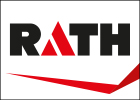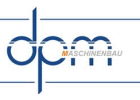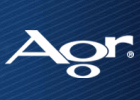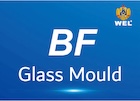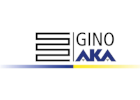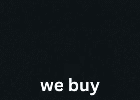About vandaglas Emmen
vandaglas Emmen is part of the European vandaglas group of glass manufacturers. Operating since 1998, the production in Emmen employs 125 people, of which 70 work in the production in 3 shifts. The main product at vandaglas Emmen is insulating glass in various shapes and sizes, primarily for the Dutch market. Target customers are mainly business-to-business, including large construction companies and local craftsmen. The company emphasizes high quality, sustainability, and close collaboration with customers to continuously improve their products and services.
Transforming Production: vandaglas and LiSEC’s collaborative training initiative
As vandaglas in Emmen expanded, the need for advanced technology became apparent. The company faced challenges with outdated machinery and the need for a more data-driven approach to improve efficiency and product quality. “To be well-prepared for the future, collecting data is essential. While machine data is crucial, customer data is equally important to keep them informed about the status of their products. LiSEC was able to offer comprehensive data-driven solution, which is why we chose to partner with them,” states Jacco Simonsz, vandaglas Process Engineer. To enhance their glass cutting capabilities vandaglas initially integrated two LiSEC VSL-A lines for laminated glass cutting including storage cranes and shuttles into their production to enhance their glass cutting capabilities. After the installation it soon became apparent that the technology challenged the operators in new ways that required more solid knowledge how to handle the machines in order to tap the full potential of the LiSEC machines.
LiSEC and vandaglas partnered up to do trainings offered by LiSEC to optimize vandaglas’ production. LiSEC provided tailored training sessions , adapted to the specific requirements of the of vandaglas employees by highly skilled LiSEC trainers like Andreas Rumetshofer, that included both theoretical and practical components. The first trainings were held directly at the LiSEC VSL-A cutting lines at vandaglas in Emmen. The trainings on site covered various aspects, including the operation of new cutting lines, maintenance procedures, and the importance of data in production processes. The focus was on understanding how the glass cutting process works, why certain things happen based on the condition of the glass and how to optimize the process with different recipes.
As the benefits of the training started to show quickly, vandaglas decided to send four employees to Austria for a training on the insulating glass machines, as the company has recently invested in the LiSEC insulating glass line. Employees were given the opportunity to work directly with their new LiSEC machinery during the training. This hands-on approach helped them understand the intricacies of the machines and how to troubleshoot common issues. The training also included creating simulated problems for employees to solve, enhancing their problem-solving skills and confidence in handling the machinery. After the training at LiSEC, the four vandaglas employees left Austria with lots of operator information to process but also with lots of motivation and passion for the new LiSEC machinery. “Most people see training as cost, but it is actually an investment – you invest in your people and you invest in your machine, and in the end it pays off with higher skilled employees that take ownership, less downtime and a longer machine life”, says Jacco Simonsz.
But the training does not end after the LiSEC trainer leaves the room. LiSEC provides ongoing support even after the initial training sessions and each participant leaves with a booklet and its online version that contains all the necessary information learned during the training. A regular exchange of information between both companies ensures that employees remained updated with the latest techniques and best practices.
What were the benefits of doing LiSEC trainings?
1. Improved efficiency and quality:
The new LiSEC cutting lines and the comprehensive training programs significantly improved production efficiency. The number of breakages and remakes decreased, leading to higher productivity and reduced waste. “We invested a lot of time in the new cutting line and gained lots of experience through the trainings, which helped us to reduce breakages tremendously ”, says Ben Fennema, Technical Manager of vandaglas. The data-driven approach of the LiSEC machines allowed vandaglas to better analyse production processes and make informed decisions, further enhancing efficiency.
2. Enhanced employee skills:
Ben Fennema continues: “While the increased automation in new machines reduces the physical strength required for the job, it also demands a higher level of expertise to operate them correctly.” Through training employees gained a deeper understanding of the LiSEC machinery and the importance of maintenance and data analysis in order to have a high-quality output. This knowledge translated into better handling of the machines, fewer operational issues and better output quality. The training also fostered a sense of ownership among employees, who now view the machinery as their own and take greater responsibility for its upkeep and performance.
3. Positive cultural shift:
Changing to a new brand for their new insulating glass lines was a big change for some of vandaglas’ employees, as each brand has a unique way of operation. Sending employees to a training at LiSEC before even having the machinery at the vandaglas production facility in the Netherlands helped greatly to increase the acceptance of the change among the employees. “One of the most important aspects is the change in mindset among the people. While acquiring knowledge and learning the intricacies of the machinery are crucial, adapting to the new system is equally significant. This shift in mindset is why the training provided by LiSEC is so beneficial. It ensures that employees are well-prepared to embrace and effectively use the new system,” says Dolf Kuiper, plant manager at vandaglas Emmen. The employees trained on the insulating glass lines at the LiSEC inhouse training center brought so much motivation back home that it led to a positive cultural shift. Now everyone is looking forward to having the new LiSEC lines in Emmen. The LiSEC training programs also brought about a positive cultural shift within the company as employees became more open to learning something new and the willingness to embrace new technologies increased.
Empowering employees and enhancing production through LiSEC trainings
The collaboration between both companies has significantly transformed vandaglas’ production processes. The tailored training sessions provided by LiSEC both on-site and in Austria have enhanced the skills of vandaglas employees, leading to improved efficiency, less downtime, reduced waste, and higher product quality. The ongoing support and regular exchange of information between the two companies ensure that vandaglas remains at the forefront of technological advancements in the glass manufacturing industry. “During our visit at vandaglas, we were invited to a feedback session with the supervisors who had just returned from training at LiSEC in Austria. It was wonderful to see the motivation and anticipation for the new LiSEC equipment on the faces of the training participants. The joy they expressed reassures us that we are on the right track with LiSEC customer training”, says Stefan Danner, Head of Training at LiSEC. This partnership not only underscores the importance of investing in advanced technology and employee training but also highlights the positive cultural shift within vandaglas, fostering a more motivated and skilled workforce. With the new investment of the insulating glass lines the future collaboration of vandaglas and LiSEC will be intensified and will get even stronger than before.



